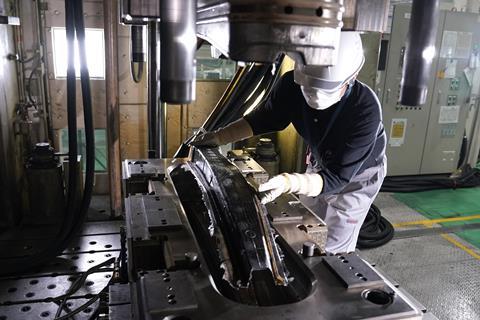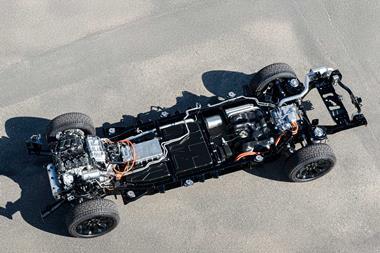Nissan aims to use the new process to mass-produce CFRP parts and introduce them in more cars for customers

The company says it has found a new approach to the existing production method known as compression resin transfer moulding. The existing method involves forming carbon fibre into the right shape and setting it in a die with a slight gap between the upper die and the carbon fibres. Resin is then injected into the fibre and left to harden.
Nissan’s engineers developed techniques to accurately simulate the permeability of the resin in carbon fibre, while visualising resin flow behaviour in a die using an in-die temperature sensor and a transparent die. The result of the successful simulation was a high-quality component with shorter development time. It’s claimed this technique can cut the lead time to develop such components by half, and cycle time for moulding by about 80%, compared with conventional methods.








































No comments yet